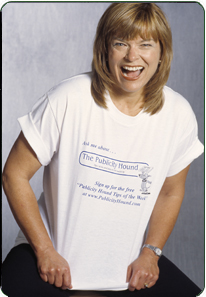
Press Release Tip 1:
Stop writing press releases only for journalists.
Welcome to Module 1: The New Rules of Press Releases
Gone are the days when you wrote a press release, sent it to the media, called reporters to see if they received it, then crossed your fingers and hoped they’d print it. If they did, you got a clipping for your scrapbook.
If you didn’t, you got zero coverage. Or if you worked in PR, you were in hot water with your boss or client and you had to come up with a good reason why the media didn’t cover the story.
Thanks to the Internet, those days are gone. Forever.
Now, the world is your audience. And you are the media.
Today, I want you to start writing press releases directed at people anywhere—not only journalists—who need what you’re offering, and distribute them through a variety of channels. You can post press releases to your website, share them on social media, and send them to press release distribution services which will send them into newsrooms, to bloggers, and to others who have subscribed. More about this near the end of the course.
How They Find Your Releases
When someone is looking for information on a certain topic and uses a search engine to find it, even if they don’t know you, they’ll probably discover your press release if it includes the keywords they used during their search.
Let’s say you live in Boston and you sell antique doorknobs. You can write a press release about your products, being careful to insert the phrase “antique doorknobs” and other relevant keywords throughout your release. Then you post the press release to your website and perhaps through a free or paid press release distribution service if you can afford it.
A woman in New Zealand who needs antique doorknobs for a house she is refinishing does a Google search for “antique doorknobs.” Google finds those keywords in your press release online and includes it in the search results. The woman in New Zealand reads your release, visits your website, sees your catalog, and buys the doorknobs she needs—all before a journalist has even seen your press release.
If reporters write about your doorknobs, that’s great. But even if they don’t, you’ve already made a sale. Now isn’t that a lot easier than trying to get your release printed in a newspaper in New Zealand? (Later in the course, you’ll learn more tips on how to make it easy for Google and the other search engines to find your press releases.)
Note: A press release is the same as a news release. Some people also refer to it as a PR release or a media release. The content within the release and how it’s written are more important than what you call it.
Opportunity #1 to send a press release: When you form an alliance
Write a press release when you form an alliance with someone else. For example, if your bridal shop has an alliance with a limo company that will give brides-to-be a series of free workshops on how to plan a wedding, let the world know.
Next: Don’t write press releases only when you have “legitimate” news. Click on the Number 2 below.

Joan,
Perhaps it’s also time to call them MEDIA RELEASES.
I agree with you, especially since the media, today, also refers to new media such as bloggers, podcasters, ezine editors, etc. But what we call the releases isn’t nearly as important as how we write them. Thanks for stopping by, Jim. I’m in the process of updating this course. Should be done in about three weeks.